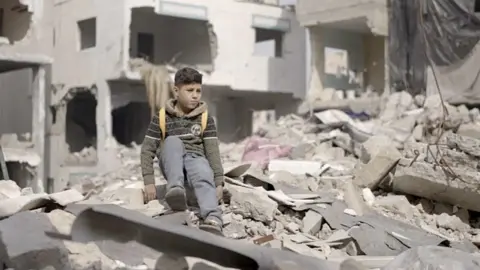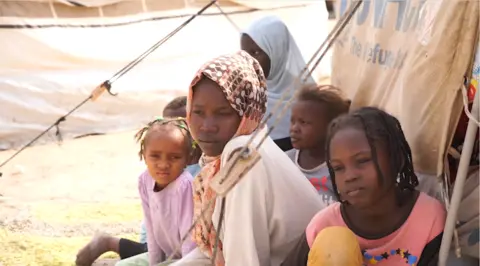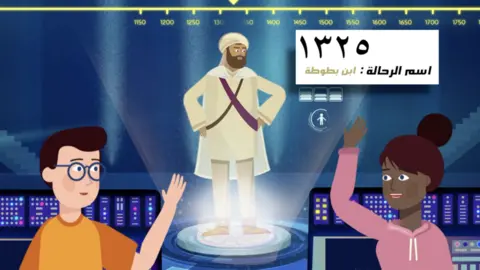Physical Address
304 North Cardinal St.
Dorchester Center, MA 02124
Physical Address
304 North Cardinal St.
Dorchester Center, MA 02124

 BBC
BBC10 -year -old Tareq, Gaza and 14 -year -old SAFAA, Sudan from Sudan. They live in 2000 km. They never met, but they shared with gross reality – the war stole their education.
“When I saw my school in the ruins, a deep sadness flooded me. I want me to return to what ever was,” Tareq says to the Gaza BBC.
“I didn’t stop learning in spite of everything. I study at home, making sure it doesn’t waste for a moment, so when I get back to school, I’m ready,” he added.
In Sudan, Safaa becomes a cardiac surgeon. “I still keep hope,” he says, but he has traumatic memories of the country’s civil war.
“The bodies were scattered everywhere, which moved me deeply, and made me want to go to life instead of being lost.”

Tareq and SAFAA are among the 30 million children who, according to the UNICEF Children’s Agency, are outside the Middle East and North Africa. It is estimated that more than half – 16.5 million – is only in Sudan.
In response, the BBC World Service has launched an Arabic issue of DARS – or lesson or lesson – on the award -winning education program.
Last year in Gaza, “more than 600,000 children – this is all school children in Gaza – received no education,” says Saleem Oweis, a spokesman for Unicef.
“We see how conflicts, insecurity and crises cause real damage to children education and learning,” he added.
In Sudan, almost two years after a civil war broke out between the army and the paramilitary support forces, millions of children live in refugee camps, where education is only available through local initiatives.
In an interview with the BBC, Sudan, Minister of Education Ahmed Khalifa highlights the degree of destruction.
“No state has been spared,” he says. “Sudan has about 15,000 public schools. 60-70% of these schools are completely injured, losing funds, infrastructure and books.
“Even in safer states, schools suffered damage to the systematic destruction of militias.”

DARS was first launched in 2023 for children in Afghanistan, including girls banned from high school, and the United Nations organization describes “learning rescue rope” for children who cannot attend lessons.
Designed for children between the ages of 11 and 16, DARS Arabic lessons have weekly lessons on many subjects, including mathematics, technology, climate and mental health.
It also contains stories in children, such as Tareq and SAFAA, who have continued to determine despite war and other obstacles.
The first episode broadcast on Sunday, February 9, BBC News Arabic. The new episodes are broadcast weekly on Sunday at 05:30 GMT (07:30 EET), with repetitions at 10:05 GMT (12:05 EET) and the week.
The program is also available on a digital platform, including BBC News Arabic Youtube, and Lifeline Radio Services in Gaza and Syria.